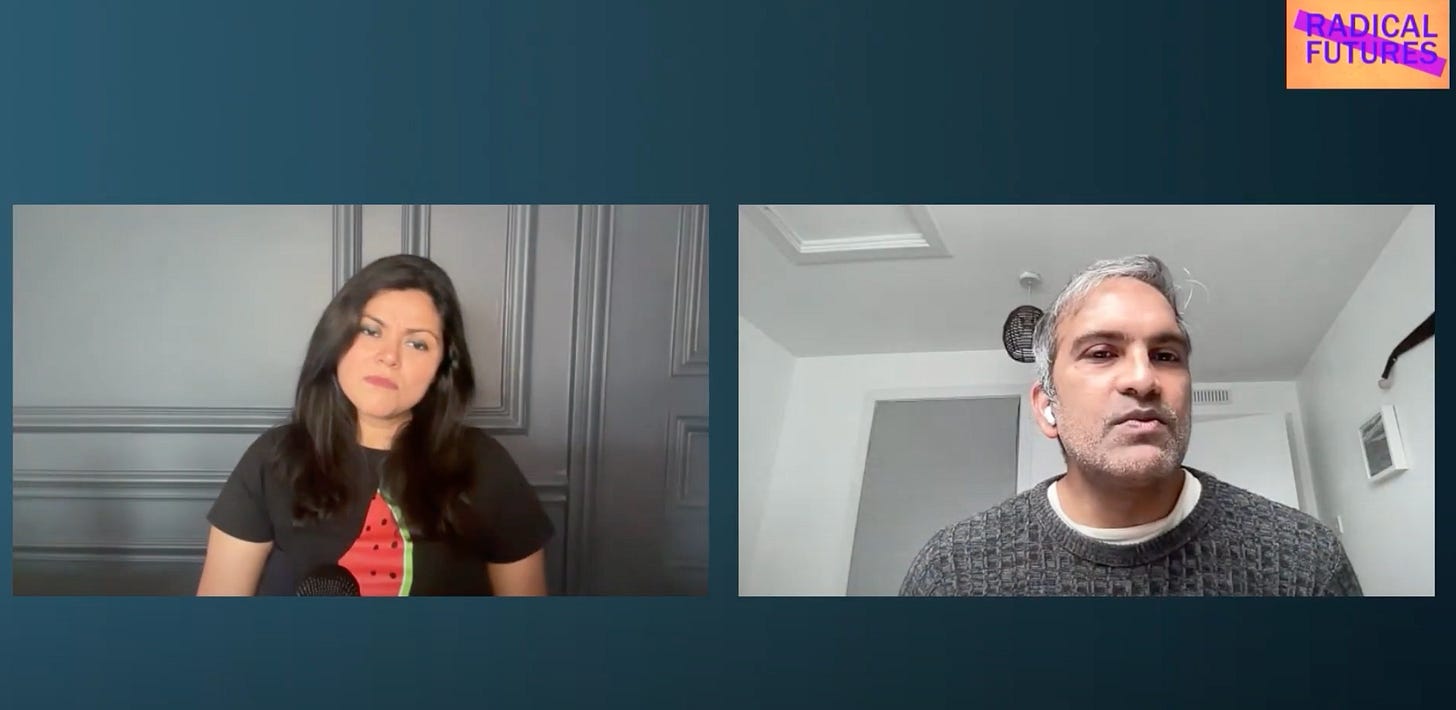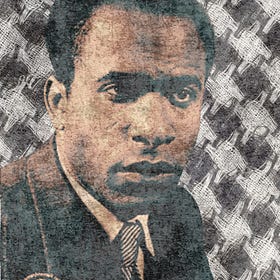Is it the end of empire or the birth of a nation?
By Bhakti Shringarpure.
It has been a harrowing week. Israel’s assassination of beloved and courageous journalist Anas Al-Sharif along with his three colleagues from Al Jazeera in Gaza has sent shockwaves across the world. A total of six journalists were killed. They were heartbreakingly young, their light extinguished too soon and too brutally.
We are all moving between shock, despair and rage: shock at the targeted and cold-blooded cruelty of the mass assassination that was captured live on camera; despair and tears as tender videos circulate of a cheerful Anas playing, chatting, cuddling and indulging his 4-year old daughter Sham; and pure rage at almost all Western media outlets rushing to say that Anas was a terrorist, and that Al Jazeera is essentially a terrorist front. The level of racist hatred towards Palestinians is so high that unpacking media spin has become exhausting. Perhaps its enough to say that neither Anas nor any of the other few hundred Palestinian journalists that have been killed have gotten anything resembling even the tiniest obituary or a word of respect from so-called “journalistic” “news” outlets.
As the week continued, the showcase of horrors was unceasing: Israel’s National Security Minister Itamar Ben Gvir barged into political prisoner Marwan Barghouti’s solitary confinement cell and threatened him with death. It was hard to see the fiercely courageous Barghouti looking so frail, so diminished; proof of his mistreatment given that he continues to endure Israel’s brutal detention regime since 2002. The fact that this attack on Barghouti was filmed and distributed meant that this not only about terrorizing Barghouti but also all us viewers. They scream out loud: Israel reigns supreme and wields violence with great pride, and we dare not forget it.
Israel’s carefully engineered famine in Gaza continues with the death toll from starvation now at 240 which includes 107 children. Images of emaciated mothers cradling their skeletal children proliferate as malnutrition rates reach alarming levels.
Nearby, the situation in Sudan is absolutely devastating too as a population of almost 25 million people experience catastrophic levels of hunger. This too is a consequence of a savage and genocidal civil war that rages across the country for over two and a half years. Here too, the media obfuscates and misrepresents the place, the people and the politics.
In an attempt to counter the notion that Sudan has been forgotten, The Atlantic sent a hawkish white American lady to recount her journey. Her tedious essay embraced the full arsenal of colonial tropes, offered up irrelevant impressions and observations, and arrived at conclusions where the word “nothing” appearing ominously far too many times. The wonderful African newspaper The Continent countered with “There's no such thing as a war about nothing. And Sudan's war is about everything.”
Anywhere we turn, the Western colonial narrative with all its racism and coloniality seems to be winning. The Western liberal media claims to despise Trump but cannot articulate baseline resistance or even offer a clear analysis as the military now takes over entire cities in the US, the education system corrodes at an hourly basis, ICE’s vigilante justice prevails, and prisons and detention centers fill up. Censorship, policing and the dissolving of basic rights is the order of the day.
Thus, within North America and Europe, Aime Cesaire’s theory of the “imperial boomerang” is now visible. Writing about the colonialism just as Nazism penetrated Europe, Cesaire wrote that the seeds of “supreme barbarism” sown in the colonies soon come to be reaped at home in Europe. Unbeknownst to them, everything that the imperialists did in those far away in the colonies comes back like a boomerang in their own backyard.
To diagnose the world today is to grasp at straws. I feel ambivalent: my pro-Palestinian and anti-colonial media algorithm coughs up various analyses, memes, and quotations that insist we are witnessing the end of empire, that its flailing, lashing out, exposing itself, fighting with its last breath to defend itself. Then I see the literal “scorched earth” strategy, the pure catastrophe, the gaping collective wound, and the relentless narrative victories on my screen everyday and I wonder if we are witnessing the birth of a nation--a new Israel, a new America, a new Europe—on lands that are erased of its people or with people locked away forever in dungeons somewhere, silenced and broken.
Is it the end of empire or the birth of a nation?
I recorded a podcast with scholar Rahul Rao some weeks ago and it was his book about statues that raised this question for me. Titled The Psychic Lives of Statues: Reckoning with the Rubble of Empire, I found Rahul’s book timely as we witness the devastation of Palestine. The term “rubble” feels chilling because we have been seeing people trapped under rubble, crushed by rubble, dismembered by rubble but have also seen those miraculous, luminous babies that survive rubble. It is however the aspirational nature of the title which implies that empire might lie in a rubble that grabbed my attention. Rahul’s book looks at the frenzy around dismantling statues that started a little over ten years ago and indeed, this says something about the zeitgeist and about a world waking up to imperial and institutional imposition of monuments in our collective spaces. People are sick of being force-fed a culture of coloniality and white supremacy, and with movements like #BlackLivesMatter, #FeesMustFall and #MeToo they have shown that they can revolt and grind these supremacist statues to dust.
But Rahul’s book also explores the phenomenon of building statues and monuments, and in places like India, this has reached feverish levels of activity. Asserting power by building statues that “enter our sight lines without permission,” and that are “non-consensual,” governments and institutions regain control over history and over collective memory. They regain power over the narrative. My conversation with Rahul only exacerbated my conundrum: if the global statues phenomenon are a way of checking the pulse of empire, where are we today? Is empire being dismantled or is empire rebuilding itself?
I have no answers. For now, I take solace in the late Ngugi wa Thiong’o’s hopeful poem “Dawn of Darkness” which circulated when the world suddenly stopped during the Covid-19 pandemic.
So I can share with you, words that Wanjikũ, my Gĩkũyũ mother, used to tell me: Gũtirĩ ũtukũ ũtakĩa: No night is so Dark that, It will not end in Dawn, Or simply put, Every night ends with dawn. Gũtirĩ ũtukũ ũtakĩa. This darkness too will pass away
Love and solidarity❤️🔥
Bhakti Shringarpure
Contribute to The Sameer Project.
Upcoming event
PEN South Africa has organized a “Writing in Troubled Times” reading series and we are honored to come together with wonderful writers, poets and translators who contributed to Literary Sudans: An Anthology of Literature from Sudan and South Sudan published by Africa World Press in 2017. The reading will be online on Thursday, August 21st at 5pm South Africa time. Write to PENSouthAfrica@proton.me for a zoom link.
And you can buy the book here.
Recent publications
10. On the Rise and Fall of Statues: Featuring Rahul Rao
Whether its legacy figures like Cecil Rhodes, Mahatma Gandhi and B.R Ambedkar, or various military men or aggressive phallic sculptures, statues are the public’s direct and unavoidable encounter with institutionally constructed histories. They represent the supremacy of colonialism, race, caste and gender, and so movements centered on either dismantling…
A Binding Order...
Back in January 2024, I sat in the press gallery of the Peace Palace in The Hague as the American president of the Court, Joan E. Donoghue, flanked by 16 other justices - typically a highly conservative body - read out the Court's shocking and near unanimous determination that Israel had a genocide case to answer to - that the…
The Age of Fanon, 2: Hunger and Starvation
Our focus on Frantz Fanon continues as the world teeters towards a self-inflicted obliteration. Settler colonialism and white supremacy as ideology, intention and method has reached its zenith with Israel and its supportive Western friends committing genocide against Palestinians in the bright light of day. Reading Fanon these days is disorienting becau…









Thank you for this powerful essay. I don't really know what else to say right now. It's so difficult to articulate what's happening in this moment, and not just in Gaza as you note. Are we seeing the death of empire(s)? The birth of nation(s)? It's hard to gauge as we're in this chaotic, historic maelstrom, being swept around in time's violent winds. Of course, like others, I'd like to think we're seeing the collapse of empires for something better, more just, a spatiality where accountability and reconciliation exist. But who's to say that will come? I refuse to give up hope, however. That would leave me dead inside.
I think of the family I support in Gaza. I can't give up on them. The fact that they are surviving, despite the odds, is remarkable. That gives me hope. So, I will continue to support them in the small ways that I am, praying that they make it out alive and that there will be a new dawn for them and all the other Palestinians suffering.
This is a revolutionary time. It must be.
So what ambitious literature of our times should be produced? Call it liberatory, call it revolutionary, call it populist and progressive or socialist, call it something imperative to the times. It should be created as if our very lives depend on it, because they do. It should be made and distributed as if the fate of the planet depends on it, because it does.